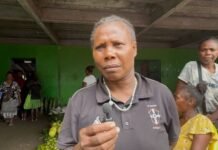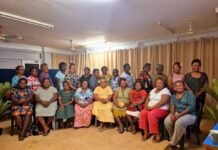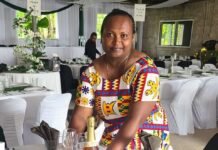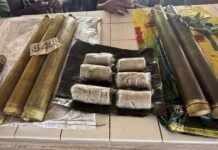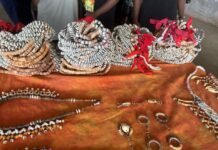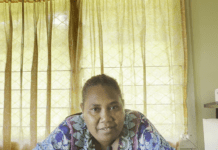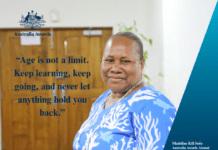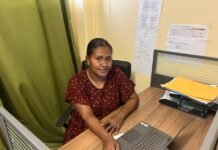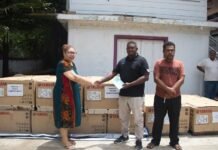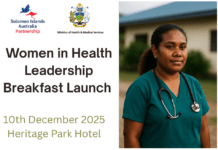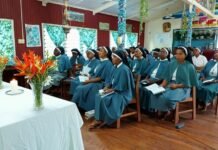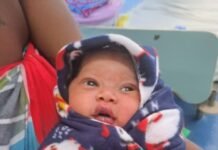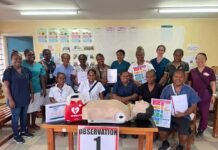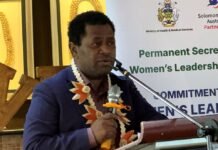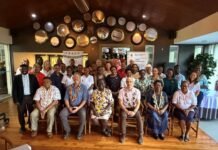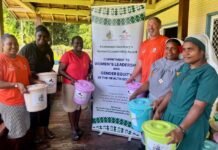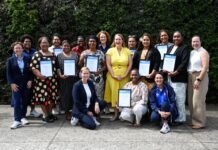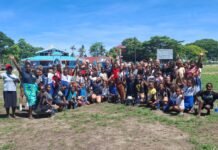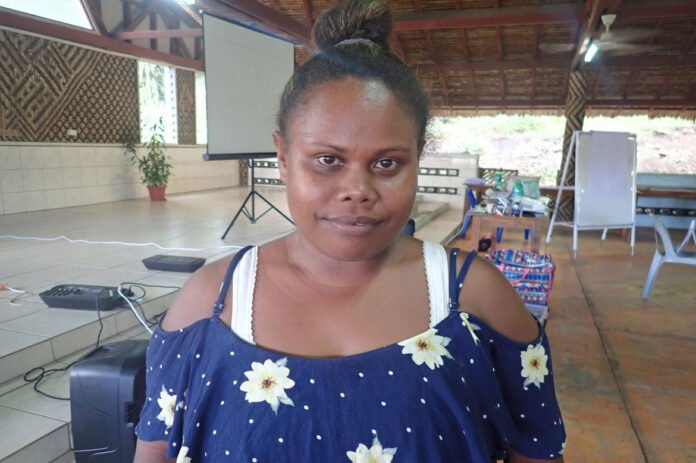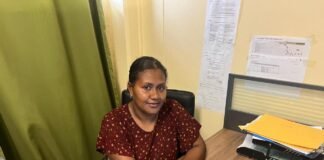BY JOY OFASIA
FACING social and economic challenges is a way of life in this 21st century and no one can deny the fact; in the Solomon Islands women account for a significant proportion of the struggling masses in terms of agricultural labor or gardening employment and small income-earning activities.
Last week, a business basic and agriculture workshop training was held for members of the Honiara Central Market Vendors Association at the Melanesian Haus, St Barnabas Cathedral.
The aim of the weeklong training was aimed to support small-scale agricultural businesses or cash income operated by rural farmers and vendors in Guadalcanal province who have suffered financially due to the negative impacts of the COVID-19 pandemic.
The training provided the participants the chance to understand how to set up, manage and grow their small businesses, to increase their knowledge, capacity, livelihoods, and to improve the productivity of their agricultural products such as vegetables, fruit, and root crops to meet the national food demand during the current COVID-19 and State of Public Emergency (SOE) and beyond.
“I am very happy to participate in such training; it has opened my mindset on how to progressively operate on certain areas of small-income generating, for instance, building self-confidence in business and improve on the productivity of crops,” according to the North West Guadalcanal, market vendor, Jacinta Maetoa.
She recalled joining the Honiara Central Market Vendor Association in 2018.
“Since joining the Association, I haven’t been to any training and this year was my first-ever business basic and agriculture workshop training to participate in and to acquire a fair basic understanding and knowledge on how to set up, manage and grow their small businesses and to improve the productivity of agricultural products,” Jacinta told Solomon Women.
This year 2020 saw the onset of the Coronavirus Pandemic, unlike any other threatening economies, lives, and food security of the developing and developed countries. The Solomon Islands eventually succumbed to the virus has been one of the few countries with the virus-free status for the past eight months.
She further described the challenges accumulated during the period of the COVID-19 pandemic and State of Public Emergency (SOPE) as very tough and challenging.
“The impact of the pandemic forced me and other vendors to market our crops at a new market site at Aruligo, West Guadalcanal instead of Honiara Central Market.”
Jacinta initially started marketing clothes at the Honiara Central Market, however, over the years she decided to switch on selling crops which she farmed in her garden at the village.
The Markets for Change (M4C) Project partners with the Ministry of Agriculture’s extension program and the ANZ Pacific Financial Literacy Program to deliver this training to the active members of the Honiara Central Market Vendors Association.






